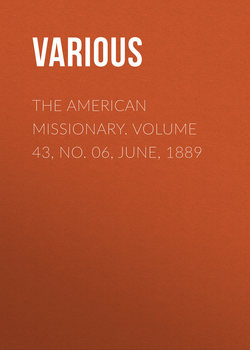Читать книгу The American Missionary. Volume 43, No. 06, June, 1889 - Various - Страница 4
EDITORIAL
THE DIVIDING LINE BETWEEN THE TWO CENTURIES
ОглавлениеThe first century of the American Constitution has passed, and has been grandly celebrated. We now stand on the dividing line, and enter upon the Second Century with its unknown trials and triumphs. What these may be, we may judge, perhaps, in part, if we turn to those of the past. Among the many and serious objections made against the Constitution at the outset, demanding protracted discussions, Compromises and Amendments, none were graver or more far-reaching in their consequences than those respecting State Rights and the recognition of Negro slavery. The bottom difficulty in these was probably that of slavery, for, if it had not introduced such radically different industries in the two sections of the country, with their different interests, and habits of thought and life, the question of State Rights might have slumbered in quietude. But when slavery had to be defended, State Rights was the bastion behind which the defence sheltered itself. Whether the Compromise with slavery at the outset were the wise thing or not, it is not worth while now to consider. We do not know what the consequences would have been if the Compromise had not been made. We all know now, only too sadly, the dreadful price that was at last paid for the Compromise.
But the war killed slavery and buried it beyond resurrection. Logically, it also killed the State Rights doctrine. But we fear it "still lives" in the heart of Jefferson Davis, and in the hearts of the many millions who still revere him as the leader of the "lost cause." Its avowal is still heard from Southern lips and in the Southern press. Will there be any occasion for its revival into active life? We fear there will be. Slavery has left behind it a ghost which no more than that of Banquo will "down." Race prejudice is as unyielding in the Southern heart to-day as was the purpose once to maintain slavery. Should that prejudice persist in its inexorable demands, another contest may arise, in which the enfranchised millions may be goaded to take part, and the North, as in the case of slavery, may be involved in the dreadful struggle. At what time in the coming hundred years of the Constitution this new struggle may come, no one can predict. The crisis will not be averted by merely deprecating it, and we know of no Compromise that can reach it. The only possible relief that we can see is by educating the Negro, till he shall rise to a position that will challenge the respect of his fellow-citizens and secure to him his equal rights under the glorious Constitution of the United States of America.
